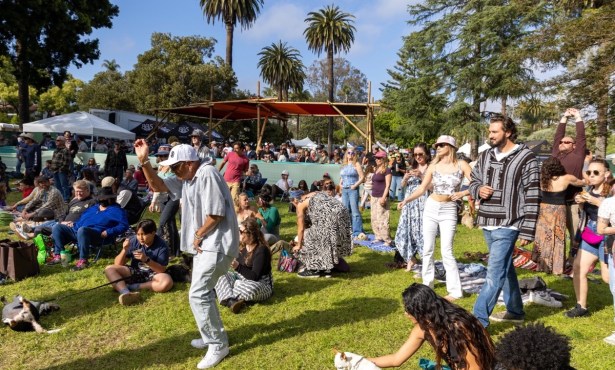Lanny Ebenstein Tells UCSB’s History
Book Signing for Recent Article Takes Place at Chaucer’s on October 22

Lanny Ebenstein, Santa Barbara’s long-serving education and economics buff, recently published a sweeping article called “The Rise of UCSB” in Noticias, the journal of the Santa Barbara Historical Museum. With a subdued tone pierced with some punchy language, the alum and now teacher at UCSB walks the reader through the university’s transformation from the late 1950s, when UC Regents purchased a former military base for $10 and moved the expanding Riviera campus nine miles west, to recent efforts in controlling Isla Vista, the place he believes could be a real hindrance to UCSB’s ability to attract increasingly high-caliber students.
“When the college was in [the city of] Santa Barbara, it really was a liberal-arts school,” explained Ebenstein. “It has kind of transitioned from the emphasis on the social sciences to an emphasis on the natural sciences.” Among other achievements, he notes its state-of-the-art stem-cell-research lab, the campus’s role in creating the precursor to the Internet, and its amazing collection of Nobel laureates.
In quick and breezy language, Ebenstein touches on the campus’s architecturally haphazard development, lamenting a “genuine architectural moment” lost, and argues the “lopsided, rushed, and inorganic growth that characterized the 1960s” continues to plague UCSB to this day. He tells short stories about the accomplishments and personal pitfalls of the university’s chancellors: Samuel Gould (talented leader whose autocratic style made him unpopular among faculty), Vernon Cheadle (credited for his academic vision but handicapped by Isla Vista eruptions), Robert Huttenback (whose arrival seemed promising but who was later convicted of using foundation funds to remodel his home kitchen), and Barbara Uehling (arrested for DUI on campus a week before her inauguration). By the time Chancellor Henry Yang showed up in 1994, which coincided with the college’s 50th anniversary, the campus community yearned for true leadership. Ebenstein paints a flattering image of Yang’s ability to attract exceptional faculty and advance knowledge, the school’s first priority.
Ebenstein leaves the readers with a sense of hopefulness about Isla Vista’s future. Last week, he expressed delight that Governor Jerry Brown signed special legislation to enable the notoriously lost and forgotten Isla Vista to morph into a special district.
4·1·1
Lanny Ebenstein, will give a short talk about the piece and his new book, Chicagonomics: The Evolution of Chicago Free Market Economics, at Chaucer’s Books (3321 State St.) on Thursday, October 22, at 7 p.m. Call (805) 682-6787 or visit chaucersbooks.com.



